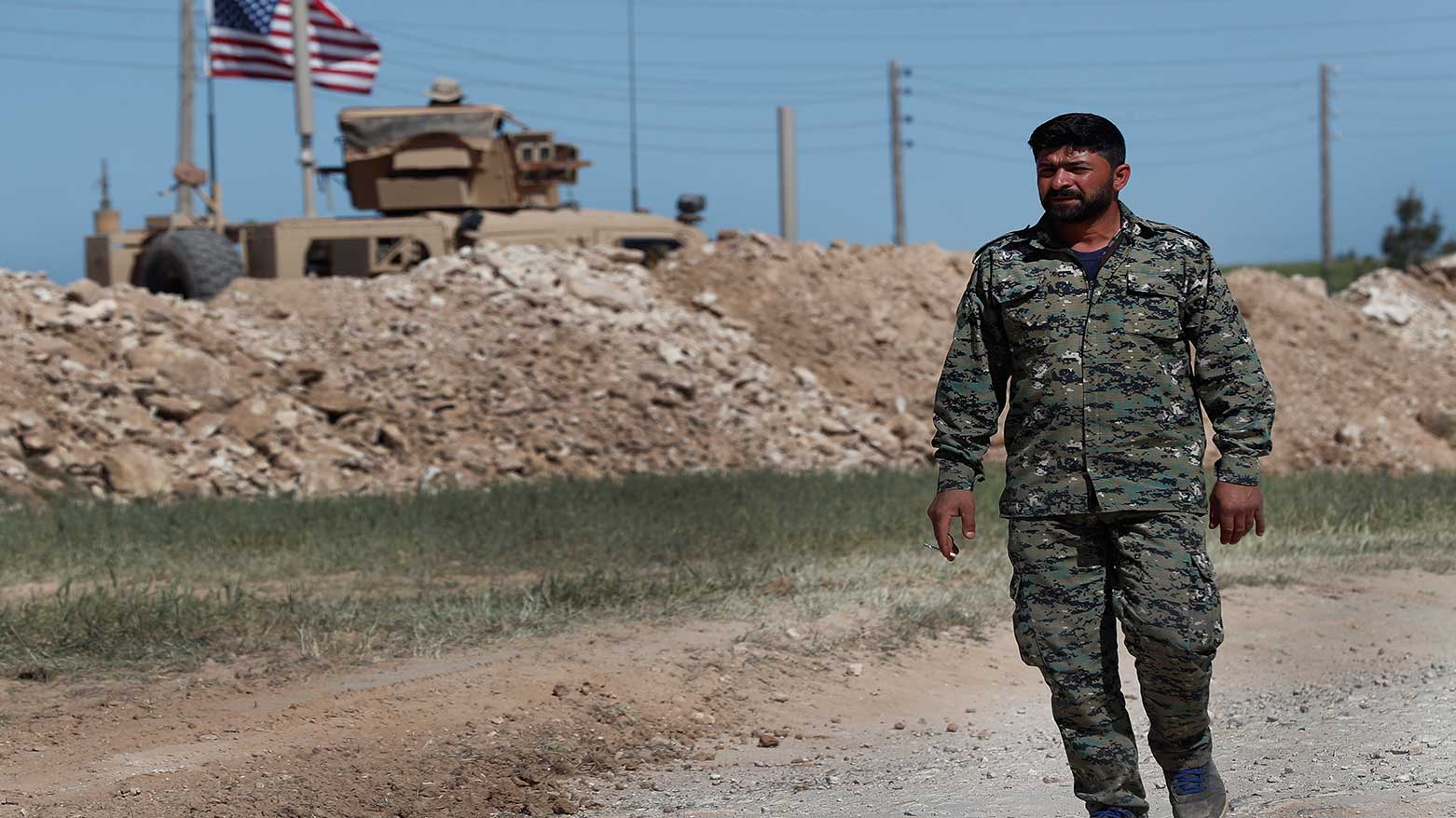Syria Accuses SDF of Rocket Attack as Tensions Flare in Northern Region
The U.S.-backed SDF, however, rejected the accusation, saying the attack was in retaliation for an “unprovoked artillery assault” launched by factions aligned with the Syrian government.

ERBIL (Kurdistan24) — Syria’s Ministry of Defense on Saturday accused the Kurdish-led Syrian Democratic Forces (SDF) of launching a rocket attack on a military position in the northern countryside of Manbij, injuring four soldiers and three civilians.
In a statement carried by the state-run Syrian Arab News Agency (SANA), the ministry said government forces successfully repelled the attack and were “dealing with the sources of fire that targeted the civilian villages near the deployment lines.” It later added that “precise strikes” were being conducted in response.
The U.S.-backed SDF, however, rejected the accusation, saying the attack was in retaliation for an “unprovoked artillery assault” launched by factions aligned with the Syrian government. According to the SDF statement, more than ten shells had hit densely populated civilian areas under their control. The group did not report any casualties on their side.
The escalation comes amid a sensitive political shift following a landmark agreement signed in March between the SDF and Syria’s newly formed interim government. The deal aims to integrate the SDF into the state’s military and administrative institutions, potentially ending nearly a decade of semi-autonomous Kurdish rule in northeast Syria.
The SDF, which has controlled vast stretches of territory in the northeast since 2015, has insisted that any integration must occur as a unified force. Damascus, on the other hand, has demanded individual enlistment into the Syrian military ranks.
The current flare-up underscores the fragile nature of the de-escalation efforts and the challenges surrounding the post-conflict restructuring of Syria’s fragmented political and military landscape. The agreement, hailed as a step toward national reconciliation, remains vague on critical issues, including the chain of command and the autonomy of SDF units.
“While we reaffirm our commitment to respecting the current de-escalation arrangements, we call on the relevant authorities in the Syrian government to take responsibility and bring the undisciplined factions under their control,” the SDF said, signaling that tensions with Damascus-aligned militias could jeopardize the already tenuous peace.
The interim government, led by President Ahmed al-Sharaa, has yet to issue a formal response. Al-Sharaa, a former rebel commander, assumed power after leading an offensive that toppled President Bashar al-Assad in December last year, ending over a decade of rule by the embattled leader.
As both sides trade blame over the latest violence, the future of the integration deal—and Syria’s broader path toward reunification—hangs in the balance.